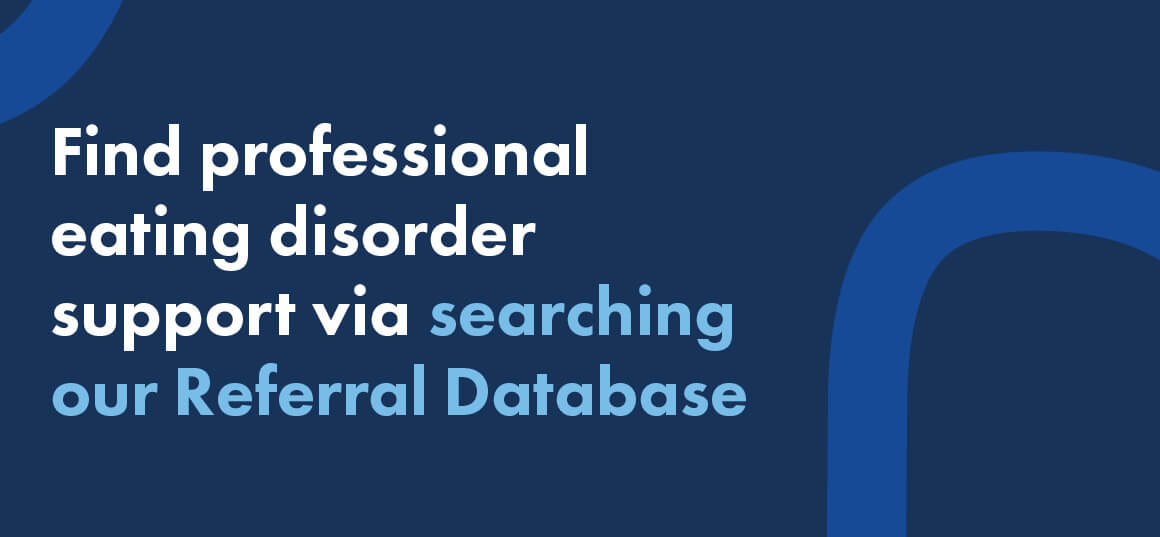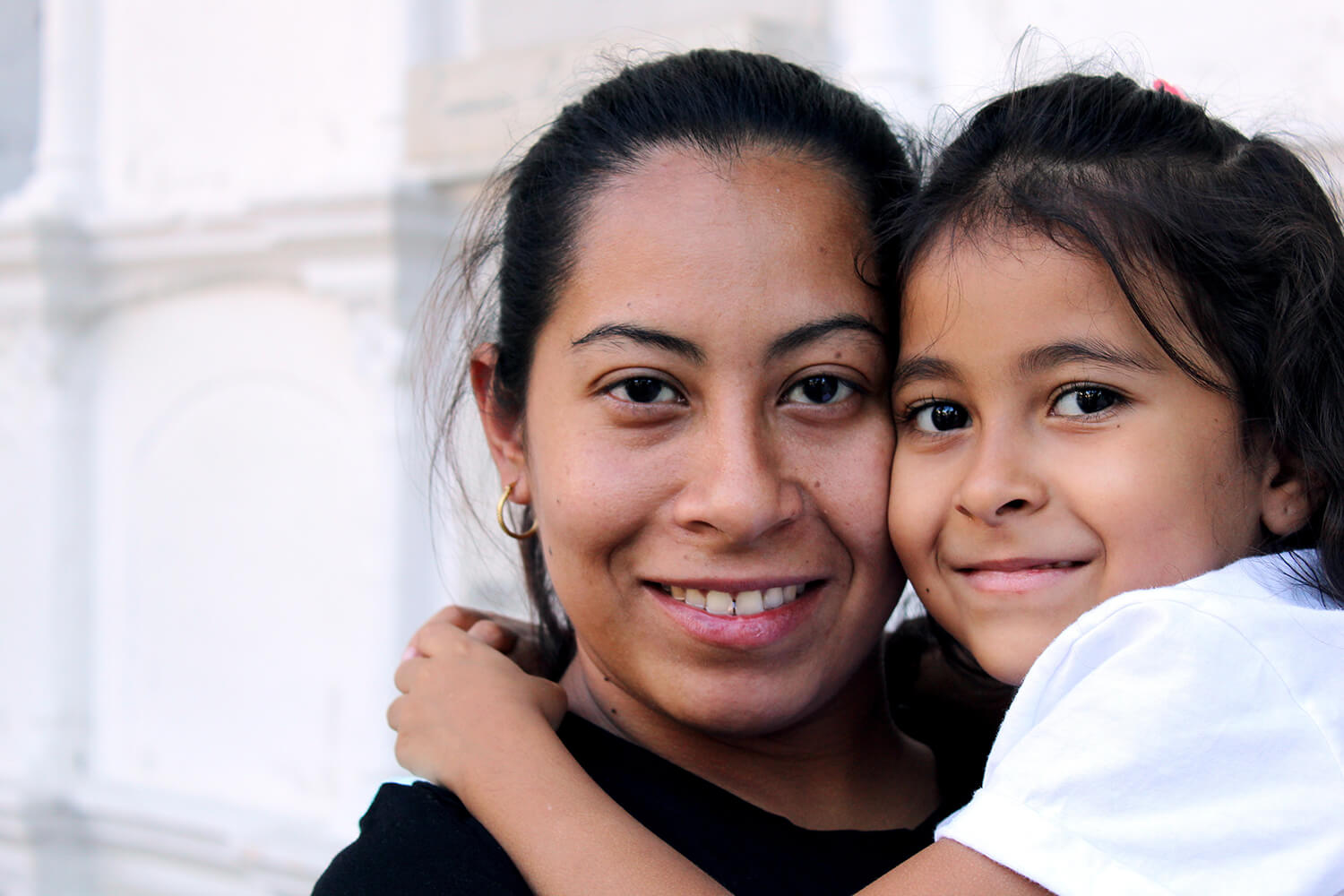Research & policy publications
Butterfly participates in research studies and develops policy submissions in the areas of eating disorders and body image.
We seek to inform and influence mental health policy and support innovative service development by drawing on the best available evidence. Our policy analysis is also informed by collaboration with others in the sector, our direct service experience and our relationships with people affected by eating disorders and negative body image.
Requests for involvement in research studies
Butterfly is open to receiving requests to promote research opportunities to our community. If you have a research project that you wish to discuss with us, please contact us via comms@butterfly.org.au with the following information:
- A summary of your research proposal
- A copy of the information statement provided to participants, including information on how findings will be reported to them
- Your ethics committee application and evidence of ethics approval from your research institution
- An outline of how you will share your research findings with Butterfly at publication stage so that we can share with our community.
We also consider requests to partner on the development of research proposals and grant applications. Please refer to our Strategic Plan 2021-2024 to see our areas of focus.
For your research to be listed with the National Eating Disorders Collaboration please email info@nedc.com.au.
Butterfly Reports
No matter your size, shape, age, abilities, gender identity, sexuality, cultural or linguistic background, economic status, profession or location, anyone can experience an eating disorder and the research into who is affected is growing.
Eating disorders are a group of mental health conditions associated with high levels of psychological distress and significant sociocultural factors. Eating disorders affect around 4 per cent of the Australian population – approximately 1 million people in any given year.
In 2022, Butterfly commissioned Kantar Public to undertake research to explore the current landscape of peer work in the treatment and management of eating disorders. Specifically, this research explores the value offered by ED peer work and considers the conditions for how to optimise this workforce.
In October 2021, Butterfly approached our strategic advisory body, the Lived Experience Community Insights Group (LECIG), and our broader online community, the Butterfly Collective, to participate in an exploratory exercise to develop an in-depth understanding of the experiences of people within the eating disorder system of care, either for themselves, or in support of a loved one. The process delivered a unique set of insights into how the system of care is experienced from a user perspective.
Stigmatising attitudes toward mental illness such as anxiety and depression have lessened as they have become better understood by community, but the variable intensity and incidence of stigma surrounding eating disorder diagnoses remains less understood. Butterfly surveyed 25 people with lived experience to explore the impact of self-stigma and structural stigma, with the awareness that understanding different types of stigma experienced by people with eating disorders must be central to the development of effective communications, service responses, and public policy.
This research explores the knowledge and attitudes of the community around body image issues and eating disorders. We wanted to understand the existing community perceptions on the prevalence, presentation and impacts of eating disorders/body image issues and the stigma surrounding these issues; and the drivers and barriers to seeking support those at risk of / experiencing an eating disorder.
In 2021, Butterfly, in collaboration with Monash University, conducted the world’s most comprehensive literature review on eating disorders and disordered eating during the COVID pandemic. The global review of 72 studies found that young people and those with existing eating-related issues were most at risk of being impacted by COVID-19. Access the full paper here.
Download lived experience PERSPECTIVE summary
Download CARER PERSPECTIVE summary
Over the past ten years, national and state-based eating disorder organisations have developed a substantial suite of documents on the evidence-based standards and practices of delivering effective treatment to people with eating disorders. The National Agenda for Eating Disorders brings together the evidence and consensus-based expert opinion behind these documents into a summary of the priorities for mental health system reform to address the needs of people with eating disorders and their families.
In late 2017 Butterfly Foundation conducted its first Insights in Body Esteem survey of Australians. The Insights in Body Esteem project aimed to discover the experience of those living in Australia over the age of 18 in relation to their body esteem, and the impact these feelings have on their day to day lives. This report was followed up with another survey in 2020, with comparable findings.
In 2016, in partnership with the Mental Health Commission of NSW, Butterfly launched Insights in Recovery. The findings have then been translated into a practical guide to help health professionals adopt a person-centred, recovery-orientated approach when working with patients experiencing an eating disorder. Below is an overview of the research.
Gaining insight into consumer experience is essential for effective implementation of mental health recovery policy.
Exploring what motivates people to engage in recovery and how they understand recovery in their lives may usefully
contribute to the development of effective practice. The below is designed for health practitioners working with people with eating disorders.
In 2014 Butterfly commissioned Deloitte Access Economics to undertake a cost benefit analysis of treatment for eating disorders in Australia. The report examines the cost-effectiveness of ‘treatment as usual’ versus ‘optimal treatment’ for eating disorders in Australia, using the prevalence trends and costing framework from the 102 Deloitte Report, Paying the Price.
In 2012 Deloitte Access Economics was commissioned by Butterfly to examine the economic and social costs of eating disorders in Australia. This review was supported by an advisory panel of experts in eating disorders, mental health and population health.
Research Report: The report explores the experience of adults recovering from an eating disorder in a professionally-led monthly support group.
The findings indicate that the support group provided a safe space to share lived experience, that it reduced stigma and isolation, and improved participants’ motivation and engagement. Furthermore, the results highlight the valuable role of the facilitator in balancing content with compassion, and potentially, fulfilling a valuable education function in supporting participants in their eating disorder recovery journey.
Butterfly launched the results of a community survey about the Medicare Item Numbers for Eating Disorders, including recommendations to further support people to access the help they need.
The aim of this research was to provide a broad and nuanced understanding of the experience of carers caring for someone with an eating disorder. The report serves to broaden understanding of the impacts of being a carer, and also what types of support carers need. It also aims to inform the type of support Butterfly advocates for, on behalf of carers, to lessen the burdens of caring on the carer.
A report to the Commonwealth Department of Health and Butterfly Foundation, providing an evaluation of the outcomes of the Sunshine Coast Eating Disorders Access Trial by a consortium of evaluation, research and eating disorder experts, including Flinders University of South Australia and the University of Sunshine Coast.
Evaluation objectives included investigation of:
1. The safety and effectiveness of Trial strategies and their impact on individuals with eating disorders and their families, service providers and health systems.
2. The role of affordability and professional development in accessing treatment for eating
disorders.
3. Other factors that influence access to treatment for eating disorders.
To ensure that everyone has equal access to eating disorder treatment and support, in 2020 Butterfly surveyed more than 550 people about barriers to accessing appropriate care for those living in regional, remote, and very remote areas of Australia. The results of the survey highlight the significant need for better access to support for those living outside of urban and suburban parts of the country.
U1 was engaged by Butterfly to conduct user research and testing on the customer journey, identifying existing gaps and highlighting pain points encountered when accessing eating disorder/body image resources and services.
Policy submissions
In August 2023, Butterfly made a Submission to the House of Representatives Standing Committee on Health, Aged Care and Sport Inquiry into Diabetes. In this submission we provide a brief overview of eating disorders and body image concerns in Australia, some research on the relationship between eating disorders and diabetes, and share feedback from our lived experience network, the Butterfly Collective.
In this submission we provide a brief overview of eating disorders and body image issues in Australia and information on manifestations of stigma and discrimination which are specific to eating disorders and body image concerns. We also share several lived experience perspectives on stigma which we have gathered over the past 18 months and hope that these voices will convey the importance of actions which address the specificity of eating disorder stigma and weight stigma across the Draft National Stigma and Discrimination Reduction Strategy.
In this submission we respond to the elements of the Auditor-General’s Performance Audit Report which relate to weight stigma and the intersection between eating disorder prevention and treatment and physical health promotion. We recommend that the ACT Government consider increased investment in eating disorder prevention programs as part of new strategy development.
Butterfly welcomes the Select Committee Inquiry into Social Media and Online Safety and the opportunity to contribute knowledge of social media and other digital spaces and their relationship to body image concerns and eating disorders. This submission discusses the significant body of evidence documenting the negative impacts of habitual social media use on body image, as well as Butterfly’s role within improving the safety of social media platforms.
The EDAA welcomes the Select Committee Inquiry into Mental Health and Suicide Prevention and values the opportunity to contribute to the implementation of mental health reforms in light of the findings of recent inquiries such as the Productivity Commission Inquiry into Mental Health and the Royal Commission into Victoria’s Mental Health System. This joint submission considers issues in the eating disorder system of care that were not given adequate consideration, and shares insights from new research and emerging findings from current projects, programs and activities being undertaken by EDAA members.
This submission provides an overview of eating disorders in Australia with a focus on children and young people. We highlight the importance of engaging with people affected by eating disorders, the prevalence of body dissatisfaction among children and adolescents, and challenges for areas for service improvement across the domains of prevention, early intervention, treatment and recovery.
This submission responds to the questions set out in the Commonwealth Department of Health’s Scoping and development of a National Digital Mental Health Framework: Consultation Paper (November 2020).
Comments are focused on the needs and experiences of people affected by eating disorders and body image concerns, including families and carers.
This submission provides a response to the Commonwealth Department of Health’s Consultation on the 10 year preventive health strategy. In the case of eating disorders and body image issues, we highlight that the domains of physical and mental health are inextricably linked. Therefore, prevention efforts must take a holistic approach to ensure that initiatives targeting physical health do not inadvertently contribute to poor mental health. This submission also details information on areas of challenge within health promotion such as weight stigma, and information on children and young peoples’ body dissatisfaction.
We take a focus on the voices of those affected by eating disorders and negative body image and areas for policy and service improvement in the domain of prevention.
Economic impacts and funding:
Prevention and Early Intervention:
Suicide and Suicide Prevention:
As a leading provider of prevention, clinical and support services for eating disorders and negative body image issues across Australia, Butterfly engages regularly with rural and remote communities and the professionals who serve them. We have drawn on this expertise and the work of the National Eating Disorders Collaboration (NEDC) to determine there is a significant need for further public awareness in regional and remote areas, and a focus on prevention and early intervention within these communities, to reduce stigma, encourage help-seeking and reduce the need for intensive tertiary care.



















